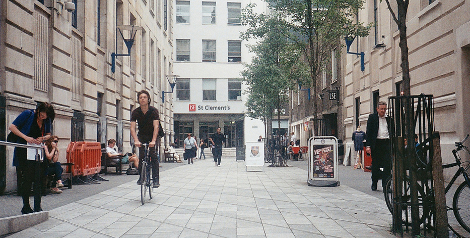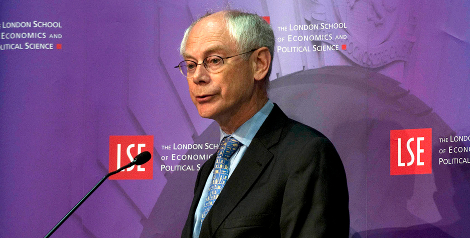Welcome To EUROPP
EUROPP – European Politics and Policy is a multidisciplinary academic blog run by the London School of Economics and Political Science. Our central aim is to increase the public understanding of European politics and policy by providing accessible academic commentary and research. We have no editorial ‘line’ beyond a commitment to communicating social science research and commentary in ways that enhance public debate and understanding.
About EUROPP
Comments Policy
- Email Privacy: Email addresses are required for commenting, and they are not published on the blog, nor shared. They may be used by the blog committee to privately contact the commenter.
- Language and Manners: This blog is for a wide audience, and comments which include offensive or inappropriate language, or considered by the blog committee and to be rude and offensive, will be edited or deleted.
- No Personal Attack Comments Permitted: No personal attacks are permitted in this blog’s comments. You may question or argue the content, but not attack the blogger, nor any other commenters.
- A Comment is Conversation: A comment which does not add to the conversation, runs off on an inappropriate tangent, or kills the conversation may be edited, or deleted.
- Limit Links: This blog is setup to automatically hold any blog comment with more than two links in moderation, which may delay your comment from appearing on this blog. Any blog comment with more than four links could be marked as comment spam.
- What To Do If Your Comment Does Not Appear: If you leave a comment on this blog and it does not appear in a reasonable time period, and you know that it does not violate these Comment Policies, contact the blog committee.
- Commenters Blocked: Anyone who violates this Comments Policy may be blocked from commenting on this blog.
- All Rights Reserved: The blog committee reserves the right to edit, delete, move, or mark as spam any and all comments. They also have the right to block access to any individual or group of people from commenting, or from the entire blog.
Notes for contributors
Authors of material relating to overseas countries or international issues should ensure that their blog relates substantively to our remit of European politics and policy. Our Blog Team would be happy to advise and help, so you are welcome to propose ideas informally to them. To submit an article for consideration, please e-mail it in a Word file to the Managing Editor, Stuart Brown at the following address: s.a.brown@lse.ac.uk Please also include Excel files for figures and charts so that these can be modified.
Style guide
To help authors with the submission process, we’ve compiled a list of some of the main style issues to keep in mind when drafting an article for EUROPP.
Length and format
-
In order to increase readability and accessibility, we aim for our articles to be between 800 and 1,200 words.
-
Please send us your draft article in Word format, with your name at the top.
Audience, writing style and language
-
Our main aim is to increase the public understanding of the social sciences in Europe. With this in mind, your article should be written with a relatively wide audience in mind, including policy-makers and other non-academics.
-
Our most widely read blog articles are written in a more natural style, so we recommend that you avoid overusing acronyms and academic terms, such as Latin words, or specific terminology that may not be well known outside disciplinary circles. Also avoid introductory phrases like “In this paper I will…”, or “This paper aims to…”, and go straight into your discussion of the topic.
-
Use short paragraphs made up of four or five sentences
-
If possible, convert numbered lists and bullet points into full paragraphs.
-
As with journalistic pieces ‘lead with the best.’ Don’t save your main argument or analysis for the end of the post.
-
Write your article as a standalone piece, even if it summarises material in a book or journal article. Try to present all of your argument and evidence within the text and avoid relying too heavily on information contained in external sources. Avoid phrases such as “In my recent paper, I have shown that Italy should hold new elections…” and simply say “Italy should hold new elections for these reasons…” All articles based on research in a book should be written about the topic itself, not about the book or why you have written it. Ultimately, the aim is to present your research, not simply to describe what you have written elsewhere. EUROPP cannot publish articles that simply serve to promote an external publication and which do not provide substantive commentary or research findings in their own right.
Referencing
-
We use links rather than citations for references. Links should direct readers to more detailed reports or other pieces of research, news items or other blog posts. Open access sources are preferred to those behind paywalls.
-
Please insert a hyperlink at the relevant point of your argument that you’d like to reference: e.g. “Joe Bloggs has said…” The easiest way to insert a hyperlink in Microsoft Word is to copy the address of the website, highlight the phrase you’d like to appear as a link in the text and press “ctrl” and “k”. This will bring up an option menu that allows you to paste in the web address.
- Please try to avoid using footnotes wherever possible and integrate material directly into the text.
Titles
-
We use narrative titles, i.e a single sentence that sums up the main argument of the article. The more descriptive and catchy the title, the more likely the article is to be read. Try to avoid questions (How can Europe solve the Eurozone crisis?) or general topics (Democracy in Poland). Some examples of good titles:
-
-
Italian journalism is the real loser from Italy’s election
-
The EU’s fading influence over Turkey is weakening the country’s democratic reform process
-
-
Try and keep titles to twenty words or less, if possible
Graphs and Charts
-
We encourage the use of charts and figures. Graphs and charts are preferable to tables, as they are easier for readers to interpret quickly. In all cases, please send us the raw data of your chart, table, or figure in Excel format.
-
Each chart needs a clearly labelled heading, labels for the X and Y axes or histogram bars, including units of measurement and a readable scale or background grid.
-
There should be a clear legend distinguishing multiple data series from each other and a brief note on sources. Lines must be thick enough and distinctively coloured. Charts should use a numerical progression to make comparisons more visible
Biography and contributor photo
-
We’re proud of our contributors, so we like to give them full attribution. Please send us a three to four line biographical note, with your academic position, research interests, and details of your two most recent books.
-
Please also send us a small colour photo headshot. Our preference is for a more formal portrait style, rather than a photo taken from an event.
Our editing process
-
In most cases submitted articles will be reviewed speedily by the Blog Team, who will edit the piece to enhance readability to the blog’s wider audience. Once these edits are complete, we will send you the final version of the article, and give you an opportunity to make final edits.
-
All articles on LSE EUROPP should be evidence based. With this in mind, editors may double-check the factual accuracy of certain points, or ask you for links to supporting information.
EUROPP house style
-
Minimise use of bold, underlining, and italics for emphasis.
-
We use British spelling – e.g. “organisation” instead of “organization”.
-
Use ‘per cent’ instead of %.
- We spell “euro” without a capital, but “Eurosceptic” and “Eurozone” with a capital.
Editorial Policy
In most cases, submitted articles will be reviewed speedily by at least two members of the Blog Team, who will edit the piece to enhance readability and maintain a consistent style. These edits may include:
- Shortening of text if the article is above our stated 1,200 word limit
- The addition of a narrative-style title to sum up the post’s main findings
- The addition of ashort introductory paragraph outlining the article’s author, their main arguments and findings, and any relevant background information for readers.
Once these edits and revisions are complete, we will send the final version of the blog article to the author with an estimated date and time of publication, and give the author an opportunity to make any further edits if necessary. Please note that owing to events and other circumstances beyond our control, we may have to change our posting order at very short notice.
Unfortunately, due to time pressures, authors may have less than 24 hours to approve our edits. However, once articles are published, we are very happy to make further edits afterwards.
Creative Commons and article sharing policy
All of our articles are published under a Creative Commons licence and other blogs and publications are free to use them, with attribution. If you do not wish for your article to be republished anywhere else then please let us know during the editing process.
Role of the General Editor
The blog team may refer the following types of articles to the General Editor (which may cause your blog’s publication to be delayed):
- Articles that are potentially libellous or defamatory
- Articles where the blog team has concerns about potential conflicts of interest regarding the author
- Articles that are insufficiently evidence based or lacking in academic rigour
- Any other articles that may impact on the reputation of the author, the LSE, or the LSE Public Policy Group/European Institute
In the rare cases where the General Editor cannot accept a blog, authors can appeal to our Advisory Board and we will ask two members to adjudicate the issue.
If you have any questions about our policy, please let us know by emailing the Managing Editor at: s.a.brown@lse.ac.uk
How to cite our articles
- Murray, R. (2012) In Hollande’s new government, women have half the jobs, but less real power than under Sarkozy. LSE EUROPP Blog. 22 May 2012 https://blogstest.lse.ac.uk/europpblog/2012/05/22/hollande-new-cabinet-women/ (Accessed 24/05/12).
All of our URLs are permanent, so they’ll never change and you’ll always be able to find the content that you’re looking for. Our content is also stored permanently in LSE Research Online, so you could also choose to link to it that way.
Our blog family
Contact us
E-mail: europpblog@lse.ac.uk
Tel: +44 (0)207 955 6909
Address: EUROPP, LSE Public Policy Group, Houghton Street, London, WC2A 2AE, UK
The EUROPP team
















